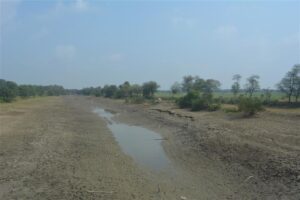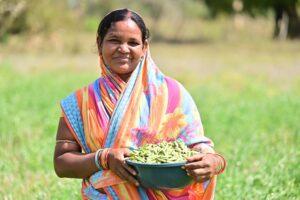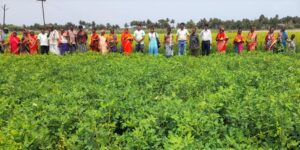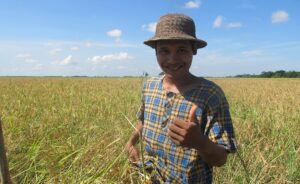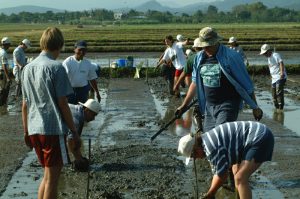 The Asian Development Bank is dedicated to reducing poverty and improving people’s welfare. The 63-member ADB pursues these goals with diverse operations in agriculture and natural resource management, energy, fi nance, industry, social infrastructure, transport, and communications.
The Asian Development Bank is dedicated to reducing poverty and improving people’s welfare. The 63-member ADB pursues these goals with diverse operations in agriculture and natural resource management, energy, fi nance, industry, social infrastructure, transport, and communications.
In 1999, ADB defined its vision of an Asia-Pacifi c region free of poverty and formulated a Poverty Reduction Strategy focused on sustainable economic growth, inclusive social development and good governance. In early 2001, it adopted a Long-Term Strategic Framework to provide a roadmap for action up to 2015. The framework is well aligned with the United Nations Millennium Development Goals and fi rmly grounded on the key operating principles of strong country ownership, strategic partnerships and development impact assessment.
Substantial and sustained support
From its establishment in 1966, ADB has recognized how agriculture, natural resources and environment are intertwined with the lives of the rural poor in Asia, and so has provided substantial and sustained support in these areas. Between 1968 and 2003, ADB approved 566 loans— constituting 17% of approved loans and totaling US$18 billion — for agriculture, natural resources and rural development.
This sector has also been a major recipient of ADB technical assistance (TA) grants, attracting 26% of all such grants between 1967 and 2003, which amounted to $497 million. ADB has a long-standing partnership with the Consultative Group on International Agricultural Research (CGIAR), recognizing much in common between the missions of the CGIAR and ADB in improving agricultural productivity, conserving soil and water resources, protecting genetic diversity, and bolstering human resources. Agricultural research continues to be relevant to ADB operations and development objectives as a means of reducing poverty in Asia.
From 1975 to 1995, ADB channeled its financial support to the CGIAR largely through individual grants to specific centers for specific purposes, which ranged from improving training facilities to establishing regional collaborative networks. Following Board approval of the ADB policy paper on agriculture and natural resources research (ANRR) in 1995, support for this sector has been channeled through annual umbrella regional technical assistance (RETA), with eight approved grants to date totaling $38.5 million.
ADB’s policy on ANRR addresses three strategic objectives: sustainable management of natural resources, improved agricultural productivity and poverty reduction. With ADB linked to farmers and local stakeholders through its partnerships with international agricultural research centers and national agricultural research systems, the bank ensures that technology is simplified into understandable language and procedures, knowledge is disseminated and institutionalized, and community participation encouraged.
The International Rice Research Institute (IRRI) is the CGIAR center that has received the most ADB support, starting with the bank’s fi rst TA project with a CGIAR center, a grant in 1975 to buy equipment for the IRRI Training Center. Since that year, ADB has supported 22 IRRI-led projects.
Other main TA recipients have been the International Crops Research Institute for the Semi-Arid Tropics, International Water Management Institute, and WorldFish Center. Altogether, 14 international agricultural research centers have enjoyed ADB support.
Comprehensive guidelines
ADB’s project-based support to the CGIAR has gone hand-in-hand with efforts to improve the focus and quality of that research. In April 2003, the bank formulated comprehensive guidelines for submitting and evaluating proposals under the annual ANRR RETA. Following procedures detailed in the guidelines, the final selection of projects for the eighth such grant resulted from one of the most in-depth consultations ever carried out within ADB regional departments.
To promote dialogue and cooperation among national agricultural-sector managers, national and international research institutions, and donors, the bank is this year facilitating two regional forums on ANRR, in Central Asia in August and in South Asia in September.
The forums will highlight significant achievements and benefits resulting from research funded by ADB and other donors, as well as strengthen linkages among donors, country programs and research outputs.
ADB’s experience in development assistance shows that agricultural research pays a handsome return in terms of alleviating rural poverty, promoting rural productivity, employment and sustainable natural resource use, and improving incomes and living standards.
ADB will continue to serve as an impartial adviser to agricultural development and a broker assisting efforts that strengthen cooperation toward sustainable economic growth and development through agricultural research and extension.

